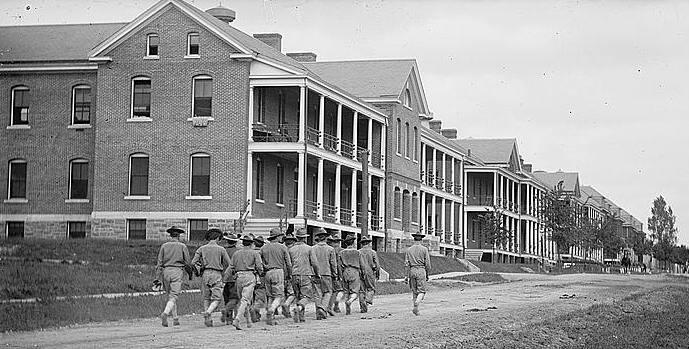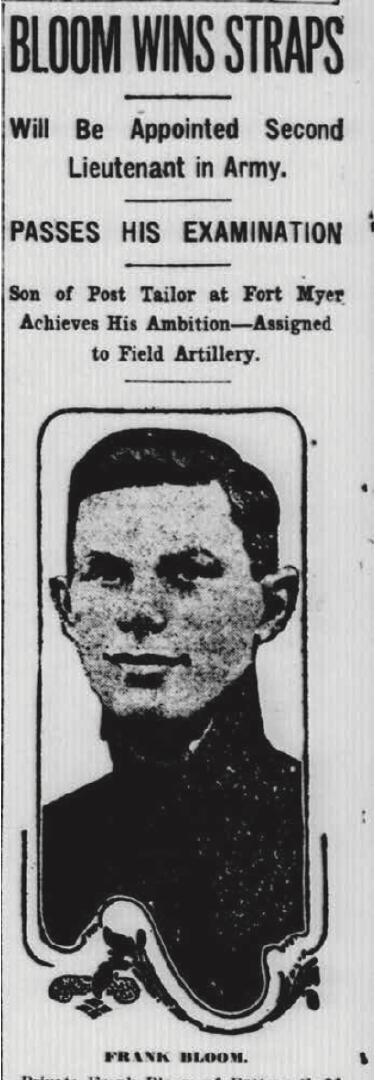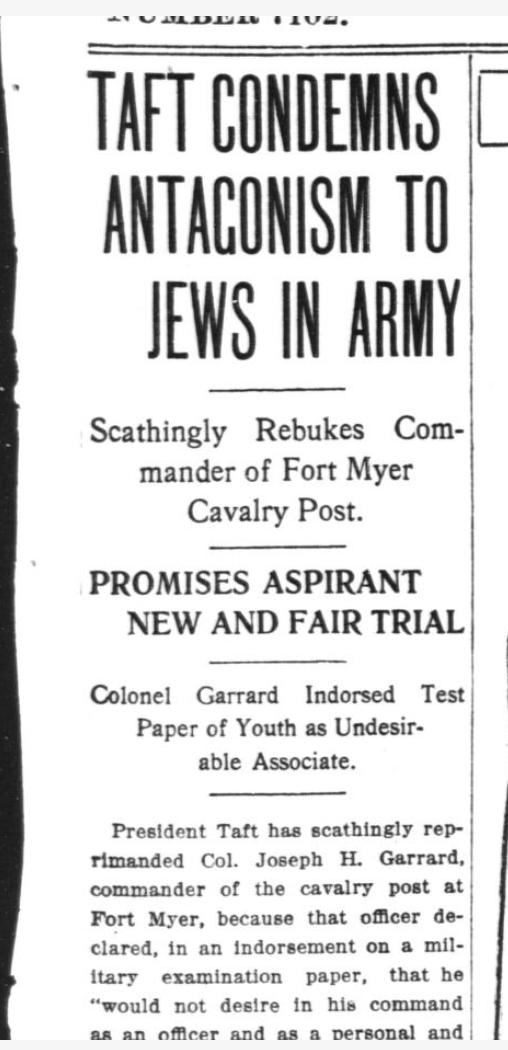
At the turn of the twentieth century social discrimination against Jews was a fixture in American life, especially in major cities, such as Washington D.C.
The following story is adapted from Jessica Kaplan's article "People of the Book, Jewish Arlington, 1900–1920."
Between 1900–1920, anti-Jewish sentiment in the United States became more pronounced and Jews were denied access to social clubs, private schools, and leisure facilities. In Arlington, a growing suburb of Washington, D.C., there were fewer elite institutions and most Jewish families had little leisure time to partake of them.
However, anti-Semitism still reared its ugly head in the county. In 1911, Joseph and Elizabeth Bloom had a thriving tailoring business in a major US Army post, Fort Myer, in Arlington.
The saga began when one of their sons, Frank Bloom, a private in the US Army, “failed” the preliminary examination to obtain a commission as an officer. According to newspaper accounts, his commanding officer, Colonel Joseph Gerard, did not pass Frank because he lacked the mental fitness for promotion. In Gerard’s comments on the matter, he praised Frank for being “honest, upright, ambitious, and probably deserving,” but qualified his remarks by saying: “The applicant is a son of Mr. Joseph A. Bloom, of the Jewish persuasion, who is now and has been for a number of years, a tailor at this post....I would not desire him in my command as an officer and a social and personal associate. I have found few communities where Jews are received as desirable social associates.”
The Blooms had emigrated to America so their children could escape inequality in highly anti-Semitic Eastern Europe, so this must have weighed heavily in Elizabeth Bloom’s mind. She bravely sought to redress the anti-Semitism aimed at her son.
She contacted Simon Wolf, an official with the Jewish organization B’nai B’rith, claiming a “great wrong” was being done to Frank and the Jews. Wolf took the matter up the chain to President William Taft, who felt Colonel Gerard’s actions were “contrary to the ideals and principles of this country.”
The story of Frank Bloom became the “greatest military sensation” of the year and was carried by major newspapers around the country. On June 5, 1911, The Washington Times on its front page carried an article with the headline "Taft Condemns Antagonism to Jews in Army," underscoring that the President scathingly rebuked the commander of the Fort Meyer Cavalry and promised the aspirant a new and fair trial.
The incident revealed a chasm in the country regarding the question who was a true American. Senator Simon Guggenheim of Colorado weighed in, “Whether a man is a Jew or gentile, no matter what his creed, he is due all fairness, certainly in the army, that is due an American citizen.
Eventually, Frank Bloom was allowed to take the officer’s test a second time. He passed, becoming a Second Lieutenant. Bloom served America throughout his life. He fought in World War I and II and worked as a civil engineer for the US government.
While a federal employee, he resided in Arlington. Frank’s brother Rudolph, a doctor, also joined the US military and National Reserve as a medical officer and, like his brother, served in both World Wars. Their commitment to defending their new homeland ran deep.
Images


